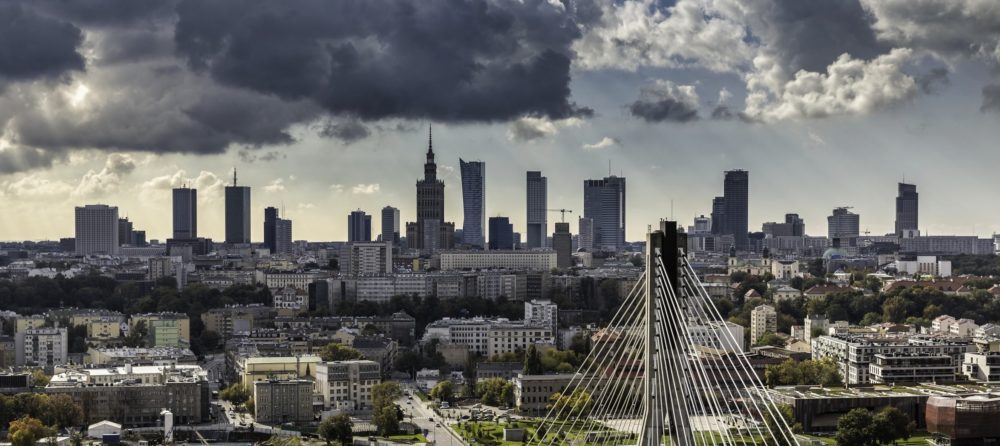
 The Roots of the Polish Modern Patriotism
The Roots of the Polish Modern Patriotism
The great Polish intellectual traditions of republican freedom and Solidarity movement and an unfinished mission of 2nd Republic great projects are fundamental to the understanding of the modern patriotism – Mateusz MORAWIECKI writes
.The last 100 years of Polish history can be called the history of a patriotic probe. The reconstruction of the Polish state after 123 years of the Partitions was possible thanks to the universal war and the great unification of young Republic of Poland citizens in the face of deadly danger brought by the year of 1920. This reconstruction was also possible thanks to Greater Poland positivism, shooting squads from Lviv and thousands of secret teaching circles with impudent pupils full of love to Poland.
The patriotism of 1918 era was modern patriotism uniting people of various backgrounds and beliefs, bound together in the sense of historic mission to build ideal glass houses Poland. This was the patriotism of grand modernisation projects, too, such as the construction of Gdynia city or the Central Industrial District. This was the patriotism that later on collided with two of the most terrible totalitarianisms of 20th century.
The question about today’s modern patriotism is also a question about the challenges of the modern world and about the allegiance to tradition that allowed the Nation to survive the storm of history that has been brought in the last century.
The question about today’s modern patriotism is also a question about the challenges of the modern world and about the allegiance to tradition that allowed the Nation to survive the storm of history that has been brought in the last century.
The history of Poland is deeply rooted in the spirit of republican freedom. One of its greatest sons was Tadeusz Kosciuszko, the hero of the American revolution. His unaccomplished testament, calling on his friend Thomas Jefferson to redeem and free the slaves and ensure their existence is worthy, is a symbol of the fact that America could have avoided the bloody Civil War and the tragic legacy of the slavery. The republicanism of the young republic could be more Polish in fact. 250 years earlier, Andrzej Frycz Modrzewski as the first political activist and thinker spoke about the equality of all states before the law.
When we think of the birth of modern German patriotism in the time of Napoleonic wars that has been greatly portrayed by writer Thomas Mann in his novel “Lotta in Weimar”, it is hard to resist the very impression that the most eminent author of German Romanticism unconsciously discovers in himself Polish republican spirit. It’s especially visible when one reads about the old Goethe’s reluctance towards fresh German-born love of Prussian militarism and its successes. The world would be undoubtedly a better place if the Polish love of freedom and equality won in American and German hearts and minds.
The second great Polish tradition is the tradition of Solidarity. It burst with such a great power and energy in 1980, combining fight for the working people’s dignity and fight for freedom along with the message of Pope John Paul II. Poles have shown the world that the greatness of the Solidarity movement is something that can be acknowledged both by American anti-Communist Republicans and French trade unionists. Polish Solidarity movement has broken not only internal divisions, but also the divisions of the world, proving that there are no walls that cannot be overthrown.
These great Polish intellectual traditions of republican freedom and Solidarity along with the unfinished mission of grand projects of the 2nd Republic are fundamental to understand the modern patriotism today. The great modernisation of Poland can become successful only when and only if it is faithful to the Polish tradition, continuing what is best in it. At the same time, it should focus on creating new social and economic rules adapted to the reality of 21st century.
Today, patriotism is primarily defined as the construction of modern, innovative economy that will not be in the service of the few, but in the service of prosperity of the entire society. An economy, where successful business owners will share the success of their employees and local communities. An economy, where strong institutions will treat the weaker with understanding while stronger – with firmness.
This economic power is a key element of soft power in today’s globalised world. It helps to build national pride, but also and most importantly, to provide a better tomorrow for the public.
We need to be aware that we live through the crisis of democratic capitalism. The Anglo-Saxon version of capitalism is not coping well enough with social inequalities, and the French social model has lost its competitiveness. Is it possible to find a model of capitalism that can simultaneously be innovative, competitive and also fair? The answer is yes. Polish response to these challenges is the Responsive Development Plan.
When Jean Monnet prepared a scheme for the modernisation of the French economy at the behest of de Gaulle after the 2nd World War, his task was much easier than the one Poland faces today. 4th French Republic had an economic structure where key industries were in French hands and strategic decisions regarding the directions of further development were made domestically. It was French choice of the French, to dive into modernity.
As a post-Communist country, Poland has a deformed ownership structure. The decision making centres in key sectors, such as banking, industry and even the media and commerce are outside Polish borders. This results in the fact that research and development centres were not located in Poland in key industries, and during the last financial crisis foreign banks in Poland limited their lending operations as a result of the decision made in their central offices. This also resulted in great brain drainage with the accompaniment of the cosmopolitan snare and pedagogy of shame, which weakened the spirit among the citizens of Poland. To make the decision about dive in modernity a Polish choice, we need to multiply the Polish capital in economy – organically, while allowing Polish companies to grow, but also by repolonisation of the property when an adequate opportunity on the market arises.
What way leads to the wealth of the nations? Industrialisation set for export. To be able to realise this goal in Poland, the Polish Development Fund was set up, an equivalent of the German KfW – the Polish investment vehicle – and the economic diplomacy reform was launched along, featuring the transformation of the Polish Agency for Investment and Trade into a modern corporation. Additionally, flagship programs for the future industries, such as electric cars, drones and autonomous vehicles, along as connected devices of the Internet of Things have been launched. Poland has a chance to be one of the world leaders in these fields. The philosophy and the methods of attracting foreign investors have been changed. The sales of Polish companies and property will be replace by the “greenfield” projects, especially in the high-tech sector.
The results achieved during two years work are visible. Two thirds of the industrial jobs within the European Union in the first half of 2017 year were created in Poland, and the investments of the largest automotive companies in the world transform Poland into an European automotive centre. Poland has also launched Start in Poland programme, the largest support plan for startups in Central and Eastern Europe region, which will allow for the first time to polonise the modern technologies. At the same time, Poland managed to reduce the extreme poverty among children by 94 per cent in just one year, hitting the world record in reducing social inequalities. It all was financed by rebuilding taxes and fighting the VAT mafia.
The use of the modern data analysis mechanisms and the establishment of the National Tax Administration returned excellent results in the area of VAT, CIT and excise tax. The Polish economy is becoming a world leader in solving problems of economic imbalance and social inequality. It is a true European revolution, yet untold – positive and genuinely Polish.
What is our modern patriotism? It is the participation in the construction of a new model of Polish democratic capitalism, which can become the leader of the 4th Industrial Revolution. It is also a choice one can make, to get involved in creating a participatory local budget, or to stay in Poland, start a business in the garage and then change the world with it. It is also a choice to take one’s family to the memorial of Solidarity movement, or the January Uprising, or the Polish Underground State.
.Poland has a great future ahead, but only when it is faithful to its past. Polish heroism is already a globally recognised brand. It is time for the Polish economy to become another one. This is an ultimate definition of the modern Polish patriotism.
Mateusz Morawiecki



















